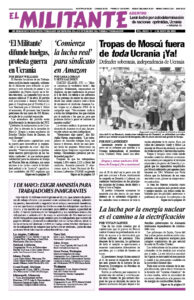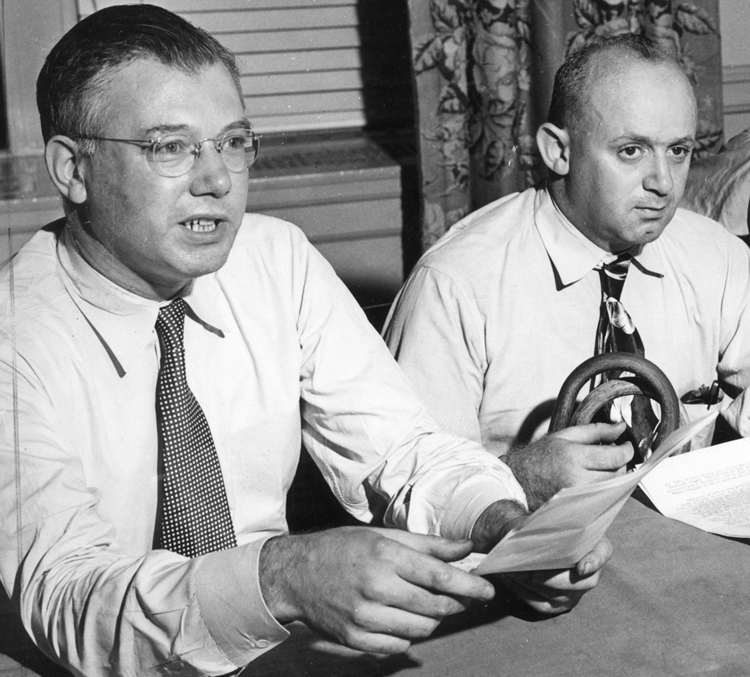When Socialist Workers Party leader George Novack joined in initiating the Committee for Artistic and Intellectual Freedom in Iran (CAIFI) in 1973, he brought along decades of leadership experience in revolutionary working-class politics and defense campaigns.
In the 1940s he had served as national secretary of the Civil Rights Defense Committee. The CRDC mobilized support from unionists and others for 18 leaders of the SWP and of Midwest Teamsters battles. They were framed, convicted and imprisoned on federal “subversion” charges for organizing opposition to U.S. imperialist war aims in World War II — the first to be railroaded to prison under the notorious Smith Act, which made it illegal “to teach, advocate, and encourage” communist ideas.
Recounting that defense campaign in his book Teamster Bureaucracy, Farrell Dobbs — a central leader of the 1930s strikes and organizing drives, defendant in the frame-up trial, and longtime SWP national secretary — wrote that Novack “had outstanding talent for such work.”
Novack cut his teeth in the 1930s fighting the racist Scottsboro frame-up, defending victimized Kentucky coal miners, and helping found the Political Prisoners Book Committee. In 1937 he was national secretary of the American Committee for the Defense of Leon Trotsky, which exposed the big lie in Joseph Stalin’s infamous Moscow purge trials.
Novack helped lead the defense of James Kutcher, who was sacked from a federal job and lost government housing in 1948 for being an SWP member. With backing from thousands of unionists and others, in 1956 “the legless veteran” — Kutcher had lost both legs in World War II — won full reinstatement.
In the 1960s, Novack helped young fighters mount a nationwide campaign to defend three Young Socialists framed for assembling “to advocate the violent overthrow” of the state of Indiana. After a four-year battle, the indictments were dropped in 1966.
And Novack was a prominent backer of the SWP’s lawsuit filed in 1973 against decades of FBI and other government spying and disruption. In 1987 a federal district judge ruled in favor of the party, a victory for freedom of expression and for the working class.
Thus it came as no surprise in 1973 that it was Novack and other SWP leaders and members who helped launch CAIFI to reach out broadly to win Reza Baraheni’s freedom. As Novack wrote in the Militant, Baraheni became a “convincing firsthand witness,” a voice for “voiceless millions oppressed by the shah’s tyranny.”
In 1979 those millions of workers, farmers and youth brought down that tyranny in the Iranian Revolution.


